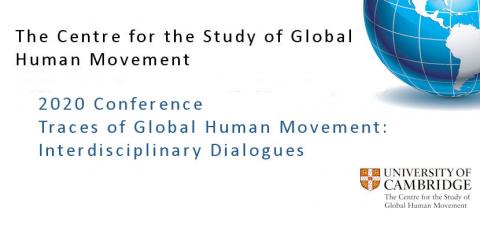
Overview
Global human movement leaves traces in every aspect of our daily lives. Our food, music, languages, homes, ways of constructing meanings, all bear traces of past and present mobilities. These mobilities do not only include people, but also artefacts, ideas, behaviours, cultures and even diseases, as well as the changing technologies, modes of transport, translation and exchanges that have served as their conduit. Nonetheless, a prevailing paradox of our global and interconnected era, characterised by an unprecedented pace of change in the political, social, environmental and technological spheres, is the increasing tendency of public rhetoric and political practice to control and devalue cross-border movements, deliberately obscuring the ways in which human life, survival and prosperity, past and present, has been defined and constituted through interactions with others. This conference aims to foster interdisciplinary dialogue to explore and deepen understandings of the complex dynamics of global human movement focussing on the traces of movement.
How are traces of global human movement evident (or suppressed) in our everyday lives, but also in our disciplines, for example, in education, music, literature, history or in the sciences? How can we discover historical and colonial legacies of movement? How are these traces read with reference to variable structures of time and place? How do they construct or complicate notions of place and cultural identity? To what extent does their recovery constitute a political strategy and if so, with what outcomes? Potential topics can focus on (but are not limited to) traces of global movement in everyday lives; modes, speeds and technologies of global movement; communication challenges, barriers and opportunities; movement of ideas, books, goods and languages; various patterns of human movement, such as touristic, nomadic, professional and lifestyle migration as well as forced migration and their relation to traces; complementarities and tension between different disciplinary approaches to movement, connectivity and immobility; and, tensions between political, economic and cultural closures, borders and global movement. We would like to encourage analytical as well as imaginative and alternative ways of conceptualising and researching the realities, processes and obstacles to human movement, past, present and future.
The Centre for the Study of Global Human Movement seeks to foster innovative ways of thinking about human movement, mobility and migration through transdisciplinary research and dialogue. Through this international conference, we seek to promote an integrated understanding of the multiplicity of dimensions that shape human life as it is lived and experienced 'on the move' in so many different ways by people in starkly contrasting socio-economic and geo-political situations. The focus therefore encourages the cross -over of disciplines and research agendas to capture overlapping and distinct experiences of migrants. The conference invites proposals from a range of disciplines as to forge interdisciplinary dialogues. We welcome individual or collaborative contributions which address the theme of the conference from across the full-range of academic disciplines in the arts, humanities, social sciences, natural sciences and technologies. We also welcome participation from those who bring non-academic perspectives to the conference themes, for example through expertise in creative practice/performance or through government or non-governmental work on global human movement.
